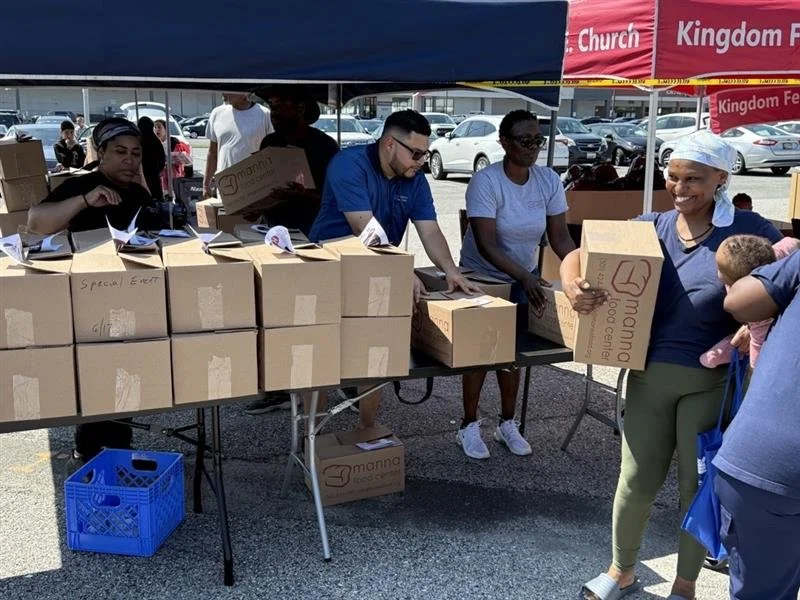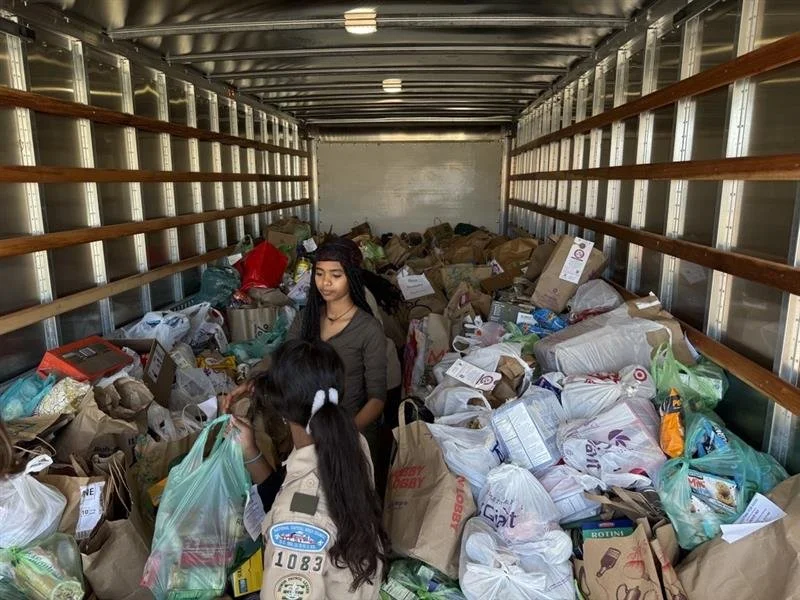When Safety Nets Fray: How Manna Food Center Is Responding to Growing Need
The Community Foundation’s “Leaders of the Future” series highlights individuals and organizations who inspire us to look towards a brighter future for Greater Washington.
This month, as part of ‘Hunger & Homelessness Awareness Month, we are pleased to feature Manna Food Center - a Montgomery County based nonprofit dedicated to eliminating hunger through food distribution, education, and advocacy. The Community Foundation is proud to partner with Manna Food Center through our Sharing Montgomery initiative and our recent Meeting the Moment Food Insecurity Grants.
The following post was written by Craig Rice, CEO of Manna Food Center. Rice is a former President of the Montgomery County Council and a longtime advocate of providing critical food security for children and families.
Each November, during Hunger & Homelessness Awareness Month, our region pauses to reflect on the persistent and evolving challenges that keep a number of our neighbors from accessing the food, housing, and stability they deserve. This year, that reflection feels especially urgent. With the longest government shutdown in history now behind us but it's impacts still being felt, and cuts to SNAP and Medicaid still looming, families across Montgomery County are facing economic pressures that echo—if not surpass—the toughest months of the pandemic.
At Manna Food Center, we are meeting more people than ever who are navigating a tightening landscape of supports. Many are working households who simply can’t keep pace with rising costs of living; others are residents still recovering from job disruptions, health challenges, or the long-term impacts of inflation. What connects them is this: rising need and shrinking safety nets.
Over the past year, our team and partners across the Montgomery County food assistance providers network have seen steady increases in first-time visitors to food distribution sites. The economic strain is not confined to any one group, but the impact is particularly pronounced in immigrant and Latino communities.
Families who previously relied on modest SNAP benefits are now seeing those supports threatened. Others are delaying medical care because they fear changes to Medicaid eligibility. Many are living with the anxiety that another shutdown—could put their benefits, paychecks, and stability at risk again.
For these residents, Manna’s markets, pop-up pantries, and distribution sites are about more than receiving food; they’re about receiving reassurance. Every bag of produce, every box of pantry staples, and every conversation with a staff member helps reinforce a simple truth: you are not alone in this moment.
To respond to these pressures, Manna has been expanding both access and connection. We have increased food distribution amounts and hours at key sites, strengthened partnerships with schools and nonprofits who know their communities best, and invested in culturally responsive foods that reflect our residents’ preferences and traditions.
We also continue to build stronger bridges between hunger relief and broader health and social services. When Medicaid or SNAP policies shift, we see the consequences immediately—more families skipping meals to afford prescriptions, more seniors choosing between rent and groceries. That’s why our team works closely with local agencies and healthcare partners to ensure participants receive not only nutritious food but also referrals to programs that can stabilize their longer-term well-being.
Montgomery County’s large immigrant population has shared concerns about accessing government programs safely and confidently. Through partnerships with trusted community organizations, bilingual outreach, and staff from affected communities themselves, Manna helps residents understand what supports are available and how to navigate changes without fear.
While the challenges we face are significant, so too is the strength of our regional network. The Community Foundation, local leaders, school partners, and fellow nonprofits have all played essential roles in advocating for resources, funding innovative food security solutions, and elevating the voices of those most impacted.
This collective work matters. It means that when federal uncertainty sends shockwaves through household budgets, our region is not standing still. We are coordinating, adapting, and finding ways to ensure families have what they need to weather instability.
As we recognize Hunger & Homelessness Awareness Month, we are reminded that food insecurity is not simply about empty refrigerators; it is about the systems, policies, and inequities that leave some communities more vulnerable than others. The threats to SNAP and Medicaid are not abstract policy debates—they are forces that shape the daily lives of thousands of our neighbors.
Manna Food Center will continue to meet this moment with compassion, innovation, and unwavering commitment. But we cannot do it alone. We need advocates, donors, policymakers, and everyday residents to stand with us. When we strengthen the safety net together, we strengthen the entire community.
In a month dedicated to awareness, I invite us all to move beyond recognition and toward action—because meeting the moment requires nothing less.





